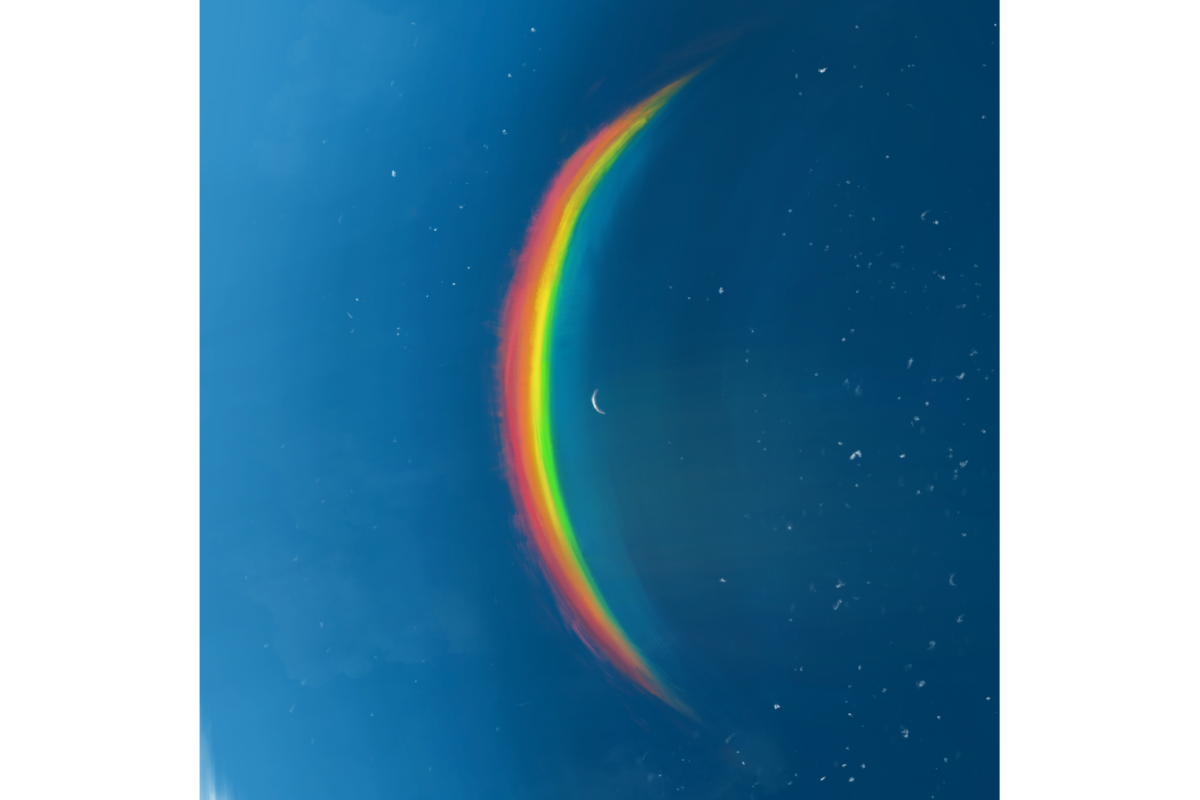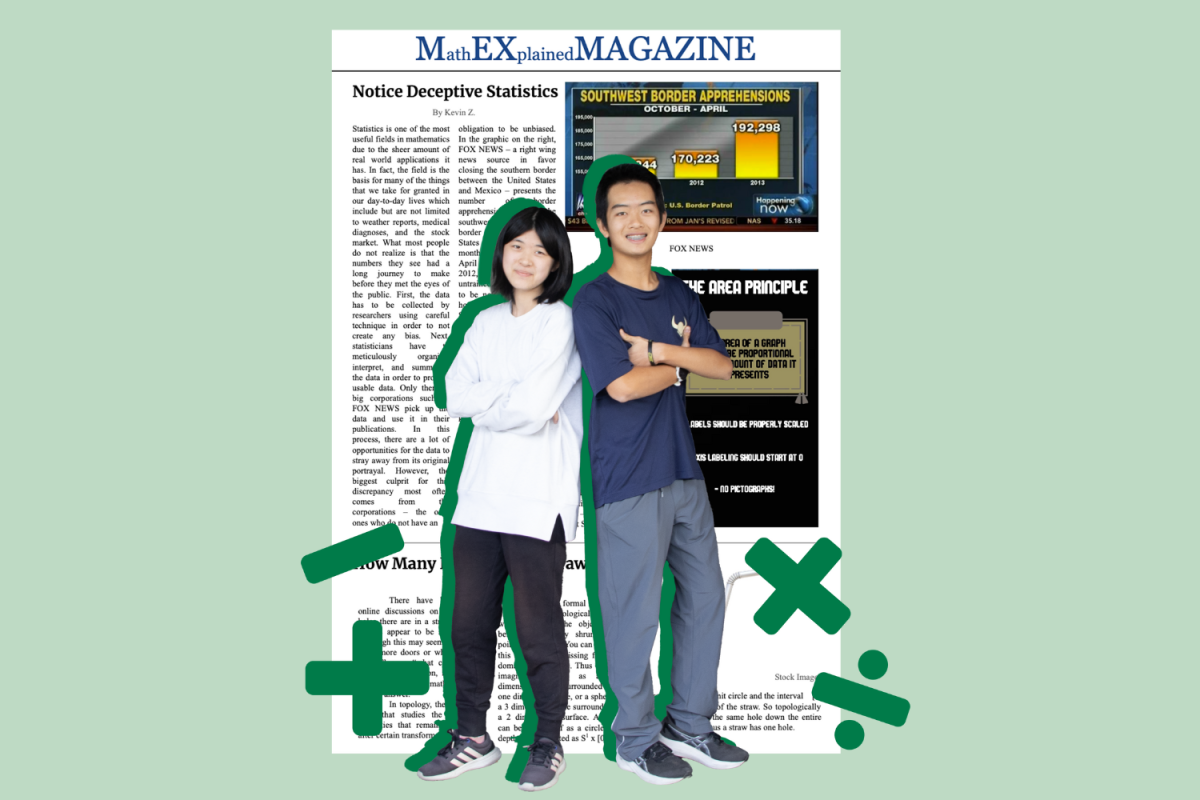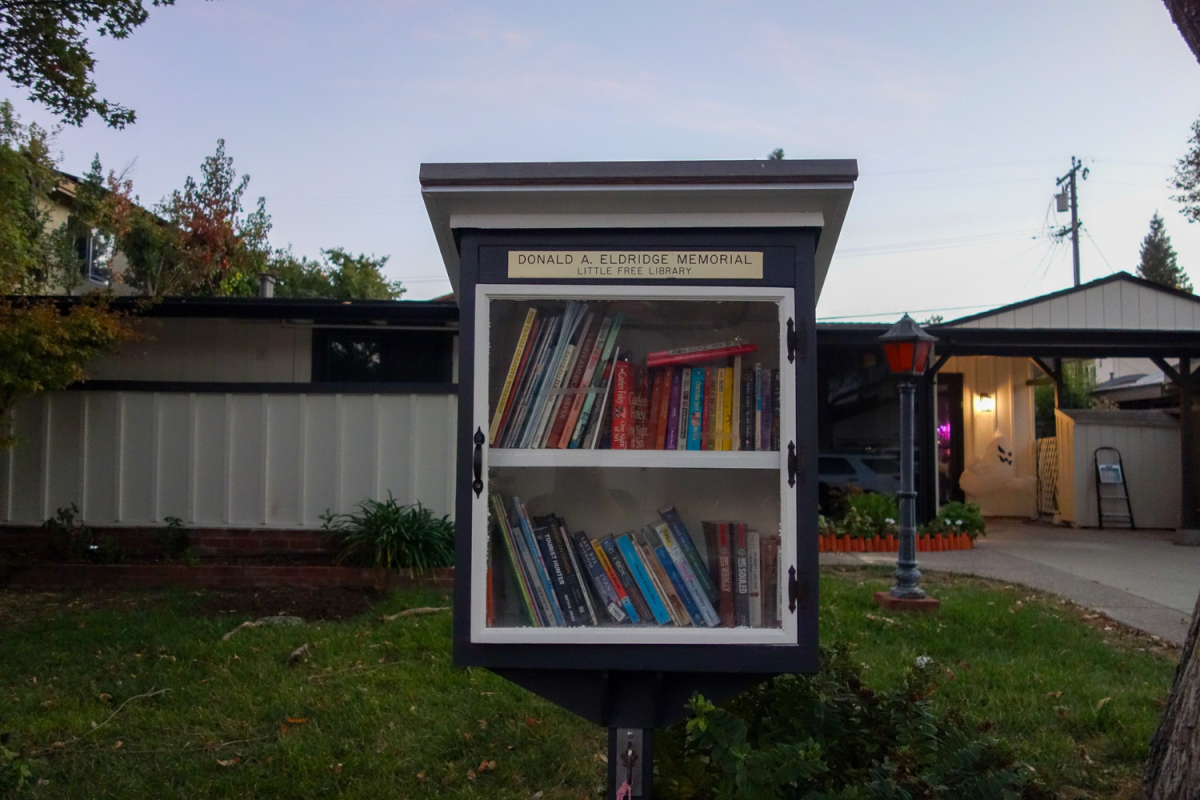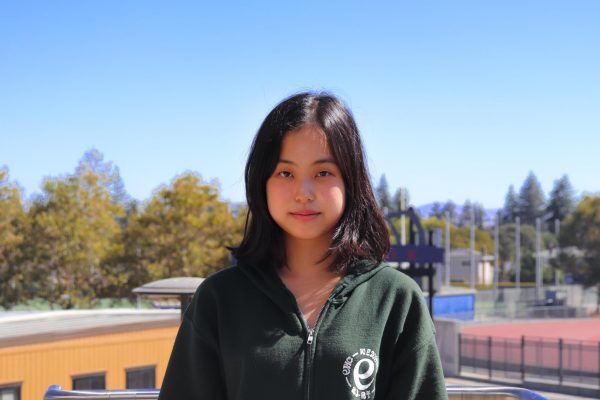Amid Earth’s modern landscape, where telephone lines have replaced integral forms of communication and starry skies are traded for pollution-veiled nights, the moon is often overlooked. With the release of their new album, “Moon Music,” Coldplay encourages listeners to look beyond the boundaries of Earth and find solace and a sense of shared love in our limitless universe. While the album creates ethereal soundscapes to lose oneself in, it fails to effectively convey their message of acceptance.
On June 17, Coldplay announced on their Instagram that they would be releasing their new album on Oct. 4. Many fans highly anticipated “Moon Music,” the first Coldplay album in 3 years after “Music of the Spheres.” The album also came with another extended version; “Extension: (Full Moon Edition)” was released on Oct. 6 with an additional 10 tracks. Coldplay is joined by a plethora of guest artists on this album: producer Jon Hopkins; singers Burna Boy, Elyanna, Tini and Ayra Starr and rapper Little Sims.
“‘Moon Music’ is kind of the story of waking up in the morning and feeling terrible about yourself, terrible about the world — depressed, isolated, separate, alone and not able to be yourself,” said Chris Martin, the vocalist and pianist of Coldplay, in an Apple Music interview with Zane Lowe, a New Zealand Radio DJ.
Although Coldplay’s message is profound and highly relevant to the modern audience, it fails to carry its power, due to the simplicity of the lyrics and cliché pop tropes. The tracks were unnecessarily long, and the repetitive lyrics failed to resonate and carry forth a powerful message. The aesthetic and messages feel disjointed and forcefully connected. Themes were garbled in an over-used depiction of romance that lacked depth and redundant repetition.
The lyrics in “feelslikeimfallinginlove” repeat itself in a coupled rhyme scheme — an AA BB CC pattern, “But it’s so dark outside, I throw my windows wide.” The homogenous structure of the song falls short of capturing the emotional intensity of falling in love.
“JUPiTER,” which had potential to highlight themes of self-acceptance, fell flat to cliché lyrics, “I love who I love, the message from above is ‘never give up.’” Introspective songs lose their power when the message is spoon-fed to listeners, as “JUPiTER” does. Interpretation of lyrics is highly influenced by one’s personal experiences and identity — “JUPiTER” does not allow as much self-interpretation, which fails to serve as a personal anthem for many. It almost feels too easy.
These trite lyrics also make their appearance in “AETERNA”: “eyes so hypnotized, ‘cause when you look at me.” It seems that romance is not exactly Coldplay’s forte.
Parallel with their theme of “Moon Music,” however, Coldplay is highly successful in creating ethereal, alluring soundscapes. Certain highlights such as “MOON MUSiC” and “Angelsong” shed light on their abilities to transcend sound itself and bring these lunar melodies to life.
“Angelsong,” depicted as a rainbow emoji on their album tracks, truly highlights their cinematic storytelling capabilities. The drawn-out instrumentals and variety in sounds and melodies provide a sense of comfort and awe. Melodies transition in and out of each other, each one a different hue, a spectrum of colors unfolding into a brilliant rainbow. Maya Angelou concludes “Angelsong” with nostalgic, evocative words: “When it looked like the sun wasn’t gonna shine anymore / God put a rainbow in the clouds / God put a rainbow in the clouds.” The echosphere cradles the lyrics, allowing them to shine through. “Angelsong” is uplifting, a silver lining whispering through the moon among the uncertainty of modern nights.
“Feelslikeimfallinginlove” seems to be a fan favorite, and both junior Jessie Zhu and senior Sanya Badhe express this song as the true star of this album. The music video for “feelslikeimfallinginlove” is entirely in a monochromatic scheme. In the music video, an actor tells the lyrics entirely in ASL. This helps increase Coldplay’s accessibility to a larger audience, in addition to highlighting the themes of inclusion and community.
Coldplay also struggles to recreate their own unique style that previously captivated listeners; some of the tracks rely on over-familiar melodies. “We Pray” feels like a symphonic rendition of “Me and My Broken Heart” by the one-hit-wonder boy band Rixton; the harmony progressions in the orchestration resembles the latter. However, these simplistic and predictable melodies work for their first track, “MOON MUSiC,” giving the song an almost lullaby-like atmosphere.
Over the years, Coldplay has shifted from heavier and metal-like to a mellow, pop sound. Many fans have expressed their disappointment with the pop-like quality of the album. Many of the tracks drag on for over four minutes, detracting from the potential to create expressive and dramatic lines, as they do with their biggest hit songs: “Yellow” and “Viva la Vida.”
Despite various negative reviews from critics, many fans have expressed their joy and gratitude in Coldplay’s efforts to provide solace with their newest album.
“I feel like the tunes are very nostalgic; I almost feel like when I’m listening to them, like I’m transported back in time,” Zhu said. “But it also has that really new, contemporary element about it that makes it really exciting to listen to.”
The overall aesthetic of the album is conveyed through their album cover and visualizers, which depict a moonbow. The simplicity and the hazy quality of the photos contribute to a dreamy atmosphere.
Even in their dimmest moments, Coldplay is able to force connections with their audience through personal topics and striking sounds. In their brightest moments, the full moon comes to view, illuminating all of Earth.
“There’s something magical about their music. I feel like it just transcends languages,” Badhe said. “I love a lot of artists, but Coldplay is just a different type of love. It’s magical.”
Rating: 3.5/5 stars





































































